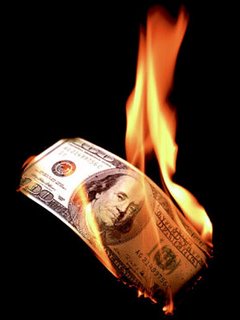 Unless you have been living under a rock for the last decade, the world's economy has been sinking relentlessly. Nonetheless, statistic shows the economy is slowly progressing. Supposedly one of the reasons for this progression is Trouble Asset Relief Program, which is also known as TARP money.
Unless you have been living under a rock for the last decade, the world's economy has been sinking relentlessly. Nonetheless, statistic shows the economy is slowly progressing. Supposedly one of the reasons for this progression is Trouble Asset Relief Program, which is also known as TARP money. TARP money is the same cash that the government used to bail-out Wall Street, General Motors (GM) and Chrysler. Nonetheless, TARP is a dirty word when it comes to politicians and people because no one thinks it is fair to bail-out irresponsible CEOs or heavily greedy individuals. But is that really case?
Scenario one: If the government does nothing.
Say, for instance, the government did not do anything and just let GM suffer. So, GM files for chapter 11 Bankruptcy. The company does not officially go all the way down in the tubes, but GM starts to layoff hundred of thousand employees. This would have directly affected the U.S. capitalism structure because unemployment and people without health insurance benefits would have increased. Additionally, businesses and consumers spending level would have decreased. Conversely, the economy would have fallen or would have been at a stalemate.
Scenario Two: If the government rescues companies and banks.
Say, for example, the government decides to invest and save GM. In this scenario, there are still working people with benefits, the government does not have to pay unemployment, and consumers can continue to spend to enhance the economy. In addition, let us not forget the stockholders, even though most of GM is government owned; the stockholders still did not lose their total investment.
ALJ — Analysis
In life when it comes to complicated matters, it is never an easy fix; however, in an economy, there are billions of lives to consider. Sometimes our leaders make decision without the input of the American people. In any given situation, it is harder to come to a profound conclusion when there are more people deciding on a solution. The American people elect government officials to make tough choices for them.
When it comes to TARP, the government should not be so hasty to spend tax payer's money. In one of President Barrack Obama speeches, he stresses the significance of the government intervening by helping banks and troubled companies. In addition he also stresses the point that the government cannot just sit back and do nothing. In economic theory, the government made the right choice. If consumers cannot spend, businesses cannot spend, and banks cannot lend, then government has to step-in.








